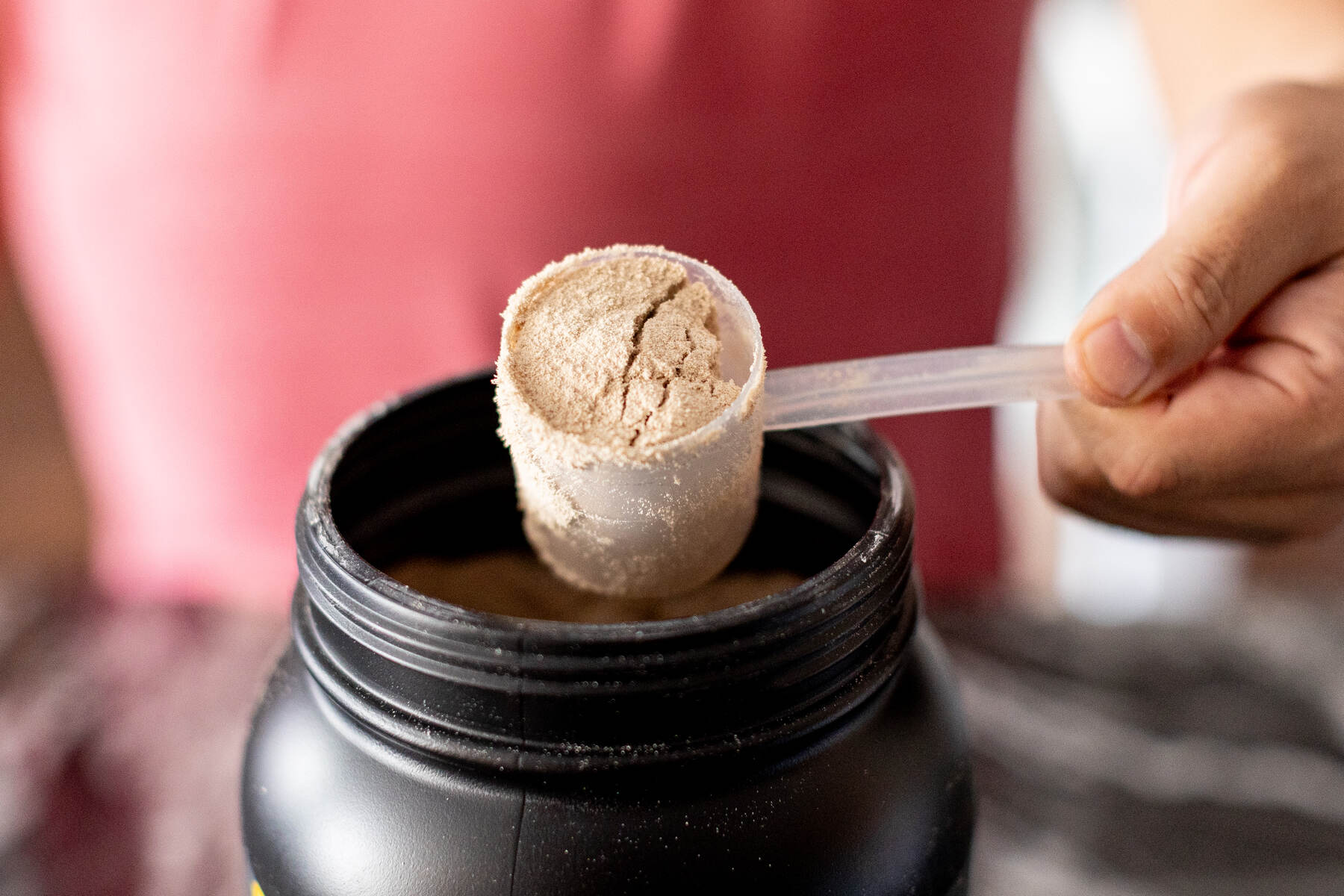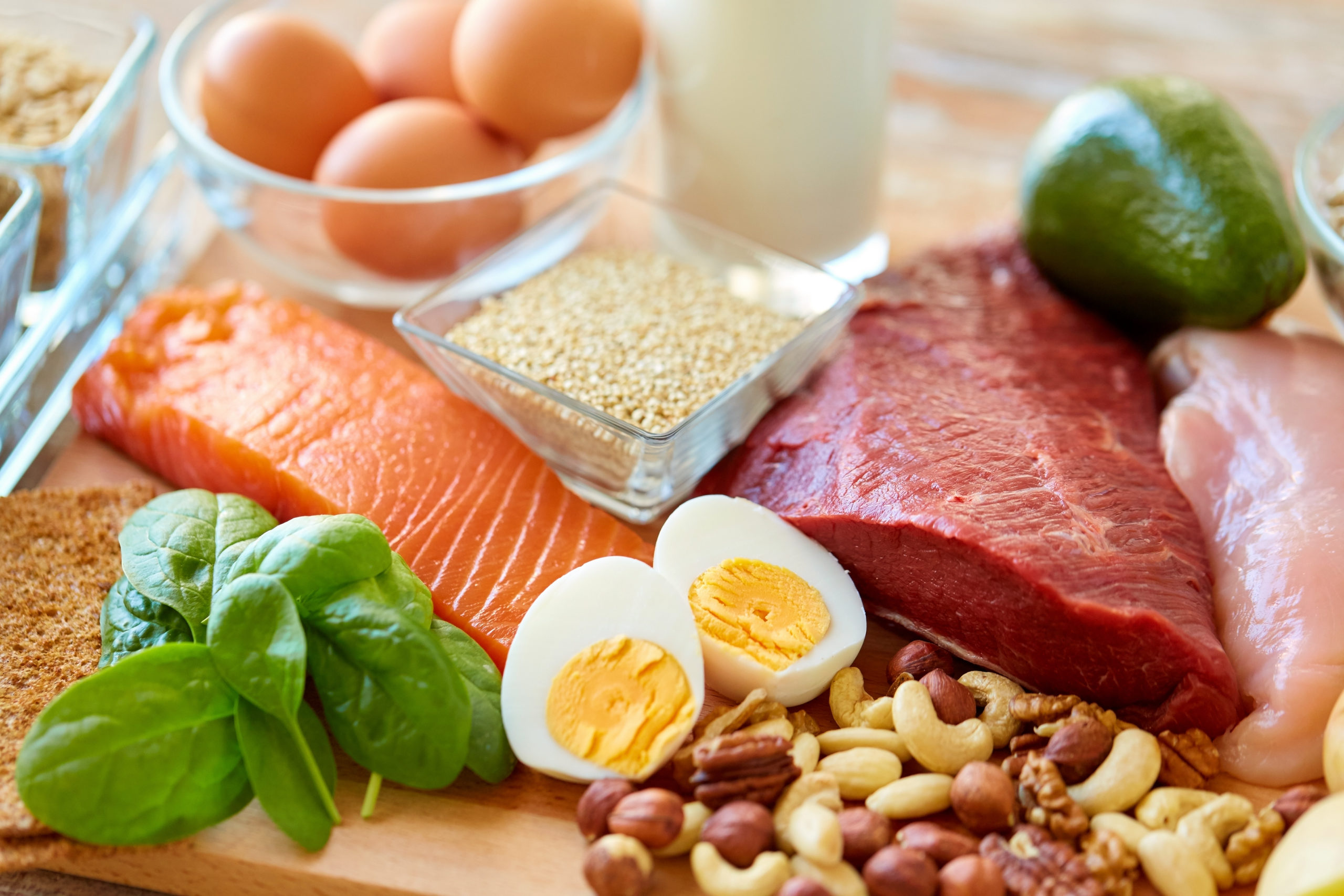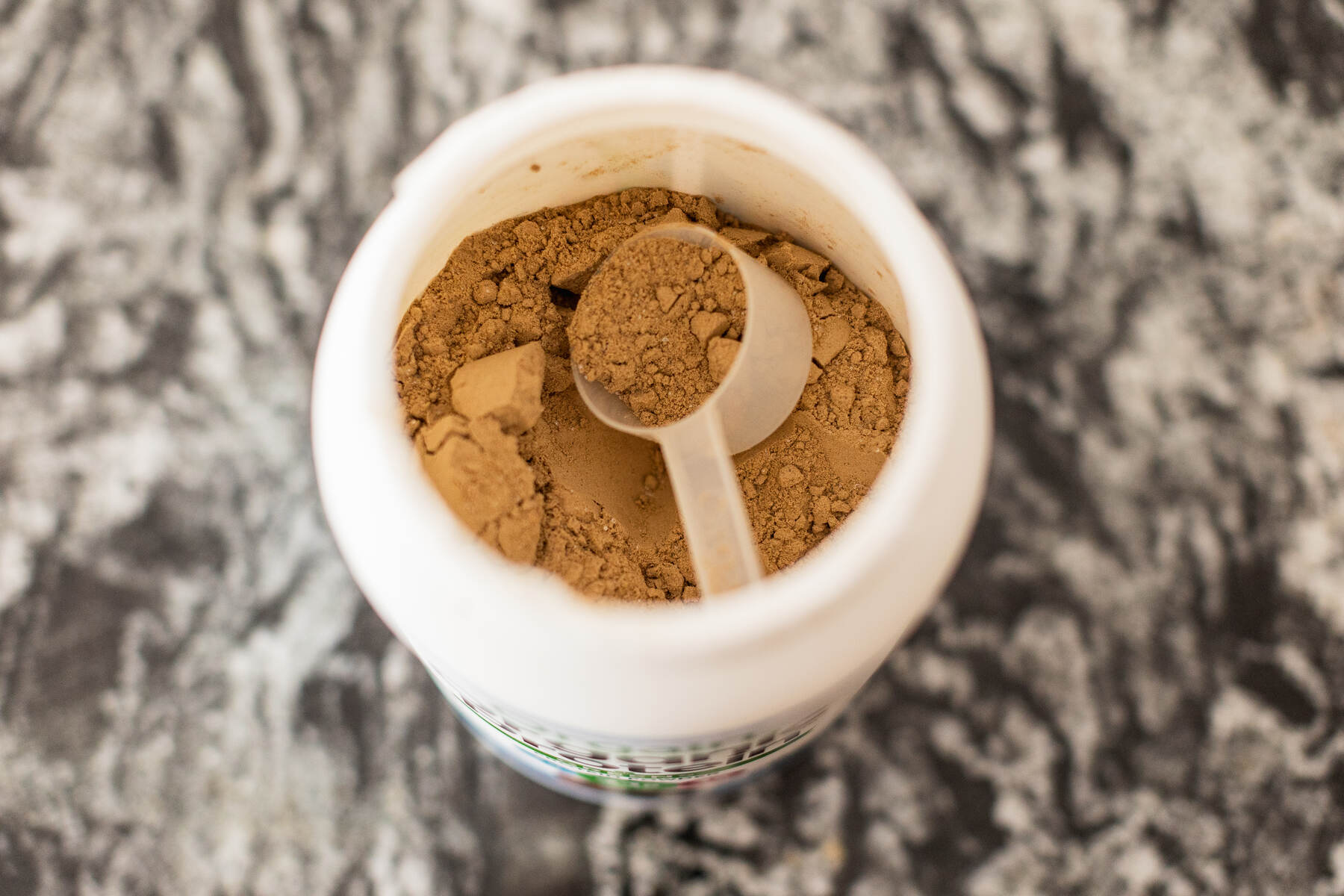Are you so health conscious that you stand for hours before the nutrition bar aisle deciding which protein bar to get?
Here’s the problem. Many people choose protein bars with the best packaging and the mini chocolate chips that say “low calorie” but really are not. While protein bars with your favorite flavor are great for midday snacks, the best bars may not be the tastiest but will be superior at storing energy between meals.
Like protein powder, not all protein bars are created equal!
Most protein bars being sold are not even close to being healthy or nutritious. So how do you make the right choice with ubiquitous false advertisements on nutritional value?
Key Point: In this guide we will teach you how to evaluate the ingredients of protein bars so that you can distinguish the pretenders from the real thing.
Quick Links
- Recommended Daily Protein Intake
- Natural Sweeteners and Artificial Sweeteners
- Whole Food Ingredients in Protein Bars
- Healthy Fats in a Protein Bar
- Fiber in Protein Bars
The Importance of High-Quality Protein Sources

Protein exists everywhere in the body, and is found in every cell.
It is utilized in enzymes, hormones, DNAs, and other body chemicals. It’s found in the hair, nails, skin, bones, connective tissues, and muscles.
Because of this, it is apparent that protein is incredibly important to our bodies and its functions.
As a result, more and more companies are selling protein bars on top of protein powder offerings.
When you eat protein bars, you are helping your body repair muscle tissues and build muscles. Protein is an essential nutrient in maintaining muscle and breaking down components during the weight loss journey.
Additionally, proteins supply raw materials the body uses to create defenders that stimulate the immune system. Protein is also used in the production and regulation of hormones’ cellular activity and metabolism.
Key Takeaway: Learning how to distinguish healthy ingredients in a protein bar is important, because the quality of the protein determines how well the body can use it for vital functions.
High-quality protein bars include ingredients such as:
- brown rice syrup protein
- seeds
- nuts
- egg whites
- pea protein
- whey protein isolate
- almond butter
- rolled oats
Low-quality protein bars contain these ingredients:
- peanut butter
- sunflower butter
- grain or cereal-based products such as bread
- soy protein isolates
- monk fruit
Recommended Daily Protein Intake

Another thing to keep in mind is sufficient daily protein intake.
Ingesting more protein than your body needs will be a burden to it and can lead to a number of health issues.
Here’s what you need to know about daily recommended protein dosages:
- Adults should consume at least 800mg of protein per 2.2lb of body weight daily, while older adults must consume 1000mg to 1500mg for each 2.2lb of weight.
- Nursing mothers and strength training athletes must take about 2000g per 2.2lb or more daily.
- Endurance athletes need 1200mg to 1400mg per 2.2lb daily.
- Protein requirements may need to be higher than 2.0 grams per kilogram of body weight if weight loss is to be combined with endurance and strength training.
What about Recommended Intake of Carbohydrates?
Choosing protein bars with fewer than 10 grams of carbohydrates is a smart idea. Too many carbohydrates cause the body to store extra fat, which might boost cravings for more carbohydrates.
Losing weight can be challenging if one consumes protein bars with a substantial amount of carbohydrates. Choose a bar with high protein and low carb.
The 1:1 or 1.5:1 rule is the best ratio of protein:carb.
If you’re looking to gain weight faster, you should consume protein bars with higher carbohydrate contents or higher whey protein concentrate. A ratio of 1:3 or 3:1 will work to your advantage here.
The higher carb ratio will only be a good idea for people who need to put on weight fast, while the higher protein ratio will better benefit those who need to build lean muscle–such as those looking to lose weight while bulking up.
Takeaway: While those looking to bulk up or lose weight will need to consider more fine-tuned ratios, in general a protein to carb ratio of 1:1 or 1.5:1 will help you build lean muscle and recover from workouts without added risk of packing on fat tissue.
Natural Sweeteners and Artificial Sweeteners
Another thing you need to look out for when choosing protein bars is sweeteners.
Several protein bars in the market are excessively high in sugar. This adds way too many calories and in many cases makes the protein bar more appropriate for the candy aisle for those looking to satisfy their sweet tooth.

If you are conscientious about high blood sugar control, you must avoid anything with overly high sugars and even high artificial sugars can be a red flag.
In general, natural sweeteners are deemed safe and healthy; processed or artificial sweeteners are often not. Artificial sweeteners have been associated with an increased likelihood of obesity, heart disease, and diabetes.
Natural Sweeteners in Protein Bars
Natural sweeteners seem healthier than processed sugar.
But the meager amounts of antioxidants, vitamins, and minerals they offer won’t impact your wellbeing much.
In other words, while natural sweeteners are necessarily great for you, they’re certainly better than the alternative.
Natural sweeteners in protein bars include:
- honey
- agave nectar
- coconut sugar
- maple syrup
- dates
- sugar
- molasses
- whole fruits
- cane sugar
Takeaway: The truth is that any sweetener offers little nutritional value, however when choosing between natural and artificial sweeteners, natural is always the healthier choice.
Artificial Sweeteners in Protein Bars
Artificial sweeteners are man-made alternatives to sugar that you should avoid consuming on a strict diet. Artificial sweeteners in many protein bars can alter your tolerance for sweetness because they are sometimes sweeter than actual sugar.
Some would claim that artificial sweeteners in store-bought protein bars are safe if they have zero calories; this is not true. Artificial sweeteners, regardless of their calorie content, have been linked to cancer in research conducted on lab animals. Artificial sweeteners include:
- high fructose corn syrup
- aspartame
- sucralose
- acesulfame k
- saccharin
- xylitol, sorbitol
- maltitol
- fruit juice concentrates
- sugar alcohols
Men should only consume up to 37 grams of sweetener a day, and up to 25 grams for women.
Takeaway: Before buying a protein bar, remember that the bar should contain no more than 10 grams of sugar, natural or artificial. However, 10 grams and less are a bit hard to find, so up to 13 would be considered just ‘okay’.
Whole Food Ingredients in a Protein Bar
Protein bars with healthy whole foods are considered the best quick snacks for getting your daily recommended protein intake.
Protein bars with whole food ingredients receive acknowledgement from many nutritionists, however it can be difficult to find quality whole food protein bars due to the cost of good ingredients and proper manufacturing. Which is why many athletes make homemade protein bars.
However, you need to note that making homemade protein bars is not as easy as you might think, and you may need assistance for additional nutritional information.
Regardless of how you source them though, consuming protein bars with whole food ingredients is probably the best way to heal your body and help it recover from strenuous physical activity.

Takeaway: Whole food ingredients are rich not only protein but tons of other nutrients as well. This makes whole food protein bars one of the best all-around options for overall health and nutrition.
Examples of Whole Food Ingredients in Protein Bars
Whole food high in protein include:
- Almonds
- Coconut
- Oat
- Egg whites
- Dates
- Cottage cheese
- Lentils
- Pumpkin seeds
Many protein bars are advertised as “whole food” but contain harmful ingredients.
We’re not saying to avoid these ingredients altogether. However, we are urging you to consume less of protein bars that include:
- Fillers
- Additives
- Preservatives
- Artificial colors
- Artificial sweetener
Takeaway: To find the best protein bar, identify options that contain quality whole food ingredients that do not contain the harmful ingredients mentioned above.
Healthy Fats in a Protein Bar
Contrary to popular belief, fats are essential nutrients.
Your body needs fats just as much as protein and carbohydrates. However, don’t confuse bad fats and good fats.
Eating healthy fats can support:
- Mood regulation
- Mental acuity
- Fatigue resistance,
- Even weight control
Bad fats cause adverse effects, such as high cholesterol levels and high blood pressure, eventually leading to several diseases.
Good or healthy fats are unsaturated fats and omega-3 fatty acids that help your body absorb vitamins and protect your brain and heart health.
Takeaway: Fats do not necessarily make you fat.
Examples of Good Fats and Bad Fats
In order to identify the best protein bars, you will need to understand the difference between good fats and bad fats.
Here’s the list of the most common fats that are considered ‘good’ and ‘bad’ by nutritionists.
Good fats include:
- Monounsaturated fats:
- canola
- olive
- avocados
- legumes (beans and peas)
- Polyunsaturated fats:
- corn
- sunflower
- safflower oil
- soybean
- legumes
- grains
- nuts
- sesame seeds and sunflower seeds
- Omega-3 fatty acids:
- salmon
- herring
- sardines
- mackerel
- flaxseeds
- flaxseed oil
- walnuts
Bad fats include:
- Saturated fats:
- dairy or milk products
- tropical oils
- Hydrogenated oils
Aside from distinguishing the bad and healthy fats, you must also be mindful of fat intake.
Takeaway: While it is ideal to consume ten to fifteen grams, with no more than two grams of saturated fat daily for every 2,000 calories, the total intake of healthy fat necessary will still greatly depend on your goals and activity.
Here are some things to remember:
- Endurance athletes must consume 1.2-1.4 grams of fat for every 440-550 calories daily.
- Strength athletes must consume 1.6-1.7 grams of fat for every 440-550 calories daily.
Regarding protein bars, the best ones are those with a total healthy fat of 5-12 grams and no more than three grams of trans fat.
Exceeding this limit means that you’ll be consuming unnecessary fat, which will put a strain on your diet and may cause unwanted weight gain.

Fiber in Protein Bars
When looking for protein bars, you should also ensure that they contain fibers to protect your digestive system.
This nutrient is the primary reason why whole plant food is great for the body.
Consuming a safe amount of fibers will help improve digestion and decrease the chance of chronic diseases. According to growing scientific research, a sufficient fiber intake may improve digestion and lower your chance of developing chronic diseases.
But not all fibers are the same!
There are many types of fibers that serve a variety of purposes.
- Soluble fiber is good for metabolic health.
- Insoluble fiber is best as a bulking agent.
- Fermentable fiber is a friendly gut bacteria that leads to many health benefits.
- Viscous fibers lead best to weight loss.
Takeaway: The fiber content of your protein bar is an often overlooked ingredient with a range of potential health benefits related to your fitness goals.
Proper Fiber Intake and Avoiding Synthetic Fibers
You should avoid synthetic fibers and fiber isolates or “bad” fibers.
These fibers may cause minor to critical metabolic diseases, such as:
- Abdominal pain
- Bloating and gas
- Chronic illness
- Systemic inflammation
- Glycemia
- Lipidemia
Harmful fibers are found in chicory root or soluble corn fiber.
Here are a few rules to follow when ingesting fiber.
- Women under 50 should only ingest 25 to 28 grams daily.
- Men under 50 should ingest 31 to 34 grams daily.
- Women 51 and older should ingest 22 grams daily.
- Men 51 and older should ingest 28 grams daily.
Conclusion: Remember that a healthy protein bar should have a minimum protein offering of three grams per serving. Anything below three grams will not give you the support you’re expecting. If you can’t find anything of high enough nutritional quality in this range, you can choose the healthier option and supplement with protein powder.